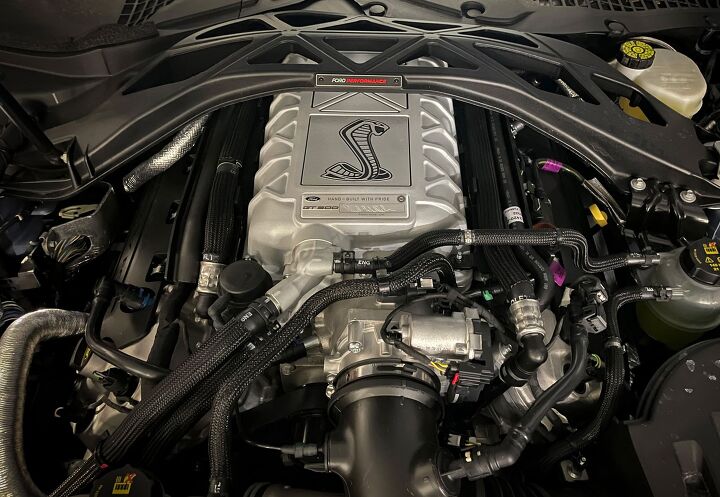What Is The Transportation Freedom Act?

Senator Bernie Moreno has introduced the Transportation Freedom Act, a legislative push aimed at strengthening American auto manufacturing, reducing vehicle costs, and rolling back emissions regulations.
The bill has already gained support from major automakers, including General Motors, Stellantis, Toyota, and industry groups like the National Automobile Dealers Association (NADA) and the Alliance for Automotive Innovation.
This article aims to present the facts as available—do not construe this content as support or disapproval—any political slant you interpret is firmly based in your own bias.
Key Points
- The Transportation Freedom Act aims to boost American auto manufacturing and lower vehicle costs.
- 200% tax deduction proposed for auto workers
- Seeks to repeal the EPA’s tailpipe rule and California’s zero-emission vehicle standards.
- General Motors, Stellantis, Toyota, and industry groups back the legislation.
One of the most eye-catching aspects of the bill is a 200% tax deduction for auto workers. This provision would amend the Internal Revenue Code of 1986 to allow employees engaged in vehicle and component manufacturing to claim double the wages earned as a deduction.
However, there are restrictions—at least 75% of production must be completed in the U.S., and individual wages are capped at $150,000 per year for eligibility.
The Transportation Freedom Act also focuses on loosening regulatory requirements for automakers. It calls for repealing the EPA’s tailpipe rule, which mandates that 67% of all new cars be electric by 2032. Supporters of the bill argue that the current regulations have led to higher vehicle costs for consumers and factory shutdowns, forcing automakers to produce EVs at a pace that exceeds consumer demand.
The bill calls for the establishment of new rules based on "evidence from industry capacity, historical data, and independent expert assessments to determine feasibility and economic impact, including on motor vehicle manufacturing job quality and stability."
The bill also seeks to eliminate strict emissions standards for heavy-duty trucks in an effort to protect supply
chains and working-class industries. This is joined by a desire to scrap the Corporate Average Fuel Economy (CAFE) regulations and replace them with what the bill describes as "realistic" targets developed with industry consultation. More specifically, it calls for a 180-day window for CAFE and Greenhouse Gas Emission standards to be replaced with new regulations "reflecting market-ready technology and industry consultation."
The bill specifically requires that any new CAFE legislation "shall not require, directly or indirectly, the production or sale of vehicles operated on electricity."
Lastly, the legislation aims to end California’s ability to set its own emissions standards, instead creating a single national standard for emissions and fuel economy. Furthermore, it would revoke California’s zero-emission vehicle mandate. According to the one-pager, the bill aims to stabilize emissions and fuel economy standards and create a 10-year regulatory roadmap for automakers. The average time to develop a vehicle from conception to certification is seven years.
If passed, it could significantly reshape the future of auto manufacturing in the U.S., affecting EV adoption rates, regulatory frameworks, and industry-wide compliance costs.
Become an AutoGuide insider. Get the latest from the automotive world first by subscribing to our newsletter here.

An experienced automotive storyteller and accomplished photographer known for engaging and insightful content. Michael also brings a wealth of technical knowledge—he was part of the Ford GT program at Multimatic, oversaw a fleet of Audi TCR race cars, ziptied Lamborghini Super Trofeo cars back together, been over the wall during the Rolex 24, and worked in the intense world of IndyCar.
More by Michael Accardi




































Comments
Join the conversation
States should not set emissions standards as we'd end up with 50 standards! If CA wants people driving EVs, then CA can pass laws making the purchase of an EV a better economic decision for buyers.
What's being proposed makes far more sense than what is going on now. Let people have the choice of what they want to buy, not forcing anything on anyone. If you want electric, go ahead and buy it.
As a tech in the auto repair industry, I'm seeing the results of the forced regulations on current gasoline powered cars, tiny engines that are overworked in vehicles too large for them. They are, in many cases, ridiculously complicated, making service a nightmare. Start-stop systems cause needless engine wear, starter and battery wear.
Ultra low viscosity oils, to improve tiny percentages of fuel economy at the expense of wear, but the government gives companies "green credits" for it, as well as "lifetime" lubricants and extended service intervals. Those extended intervals are causing in many cases oil consumption at the least and at worst engine failures. Only in very specific situations can extended intervals be used.
On the truck side, diesel emissions, while necessary (it's nice not to have the stink), are another massive complication and often have very expensive failures. Which then lead to owners to defeat the controls and systems and "tune" them, leading to that awful "rolling coal" crap. Ignorance at its highest.